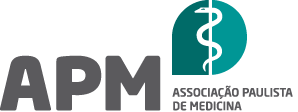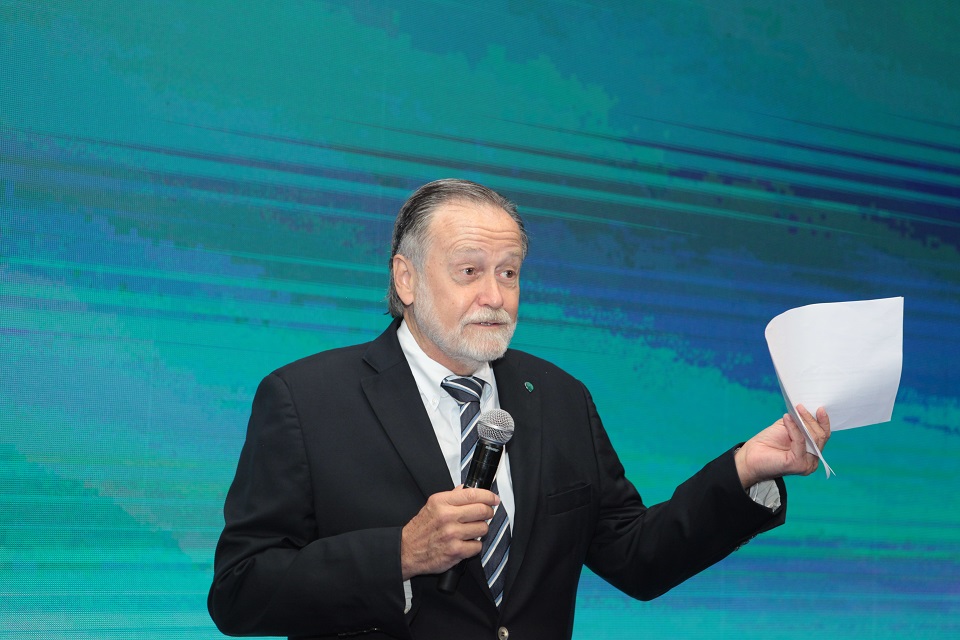Physicians trained in artificial intelligence, big data and robotics who are remotely treating patients with the help of augmented reality, nanobots and other technological tools. A big change to the way of thinking and operating health care. In the last three years, during Covid-19 pandemic, there has been a significant increase in adoption of innovative technologies. However, organizations are going a step further to create more integrated and comprehensive approaches, points out the report “The Intelligent Health Ecosystem,” released by EY. According to the report, those changes have given an opportunity to build and develop an Intelligent Health Ecosystem. This ecosystem will provide better and custom medical assistance experiences to patients, anytime and anywhere.
“By combining disease management tools with predictive algorithms and real world data, companies are seeking together care and researches proactively,” says Pamela Spence, global Welfare and Health Sciences head at EY.
For the expert, revolution in health care is not only an opportunity, but also an urgent and essential need. “Our health models are not sustainable in the long term. Cost with health expenses keeps increasing because of the global growth of costly chronic diseases. Meanwhile, global health workforce will face an estimated deficit of 18 million professionals by 2030, a gap that will speed up the mandatory adoption of digital technologies,” she underscores.
Technological Advancements
Innovators in health sector are working on the integration of cloud computing, sensors, extended and virtual reality systems and fifth generation broad band in care provision models. As those technologies keep evolving and converging on health space, they are enabling the creation of a growing Internet of Medical Things (IoMT).
“The real effect of IoMT is to drive unprecedented growth in quantity and quality of available health data. We are already witnessing an exponential growth of health data, with billions of gigabytes of patient information generated inside and outside health systems every year,” says Pamela.
The report shows that, in an increasingly connected world, with growing amounts of data, as the number of data collection grows, the volume of data related to each individual also grows. To have an idea, even with an unequal technology distribution, each person on the planet generates, on average, more than 50 terabytes of data a year. Despite a small part of it is related to health data, up to 80% of health results revolve around non-clinical data.
According to Pamela Spence, artificial intelligence offers a means to connect, combine and question such data in a different way. “This capability artificial intelligence has to evolve fast helps us feel, perceive, learn, now, ponder, plan and act. This means that a combination of humans and machines offers routes to augment only human intelligence at unthinkable levels if we compare to what we have today.” The custom data cloud for each patient will be fed in a data layer that allows comparing patient information with individualized base lines and data from real world in cuts of comparable patients. “The system can start to plan better informed targeted interventions and learn from those interventions to continuously enhance service approaches for each patient.”
Transforming service
Each move promises a revolution in the way medical assistance will be operationalized in the future. This is seconded by German cardiologist, scientist and entrepreneur Andreas Keck, expert in health technologies and innovation, who attended the launch of the Global Summit Telemedicine & Digital Health 5th edition. The event, promoted by São Paulo Medical Association (APM), will be held this year November 20-22, its main topic being “Digital health for all.”
Keck is an international business consultant for health-oriented organizations and researcher of innovative digital technologies that are being used globally, in addition to founding many companies. Currently, he is involved in the research and creation of companies based on advanced artificial intelligence algorithms, working on sets of exclusive information, including genetic, clinical, laboratorial and electrophysiologic data.
According to the executive, Europe today is the region having greater active investments worldwide when it comes to digital therapies (DTx). This is a market that can reach a volume of 4 billion dollars by 2030. The increase of health costs, having as main driver the cost with adoption of efficient treatments, emerges as a motivator in this setting, as well as the prevalence of chronic diseases.
“There are many puzzle pieces, and new adhesion perspectives through digital health. Patients are increasingly using technologies that help manage their health, and as consumers they expect more holistic services, developed according to their needs. There is also change from treatment-centered care to patient-centered care. At the same time, reduction in hospitalization and increase of revenues are expected. All that in a setting with new technological approaches, like mHealth and IoT, and pursuit of treatment customization and incentive,” he explains.
Keck adds that, in parallel, by increasing adhesion and proper use of medicines may help industries in the pharmaceutical sector to recover the billions in revenue, reduce pressure in health sector, strengthen payment agreements based on performance and value, and generate new revenues through prescription apps.
Other technologies are also supporting this process. As with digital assistants and clinical decision support systems, in addition to artificial intelligence and use of algorithms to overcome different challenges and analyze medical records data, stressing the need of combining insights and artificial intelligence (AI) with deep knowledge of medical professionals.
Power of data
How can innovation use the power of data to deliver value-based care? For Pamela Spence, at EY, organizations have the tools to offer a better custom health experience, but the ecosystem needs to help build such future. “The expanding universe of sensors and the internet of medical things, the unprecedented boom of health data and the increasingly power of Artificial Intelligence (AI) to turn this data into insights are now a reality. If all potential of those and many other technologies is unlocked, we’ll see a health assistance model that is unrecognizable today,” explains the executive, citing the report “How you can jumpstart innovation to unlock the power for data to deliver value-based care.”
According to the executive, in spite of the huge potential of this vision, to date the industry has barely progressed in the “analogic” health system journey, by means of digitized and connected care, to the truly intelligent future health system, the intelligent health ecosystem. “In this ecosystem approach, digital innovations will become more than autonomous isolated solutions, connecting to a more comprehensive and powerful data-based service system and provided by technology.” As for Luciane Infanti, associate and leader at strategic consulting firm EY-Parthenon, South America, one of the health ecosystem journeys is to take out disease from the center of work and replace it with care. “With new technologies, telehealth and the challenge of implementing open health,” she assures.
Value-Based Care
Value-Based Health Care (VBHC) benefits have been broadly recognized in the last decade, but what we discuss now is how the model can contribute to investment and innovation journey. “Although organizations have launched a wide variety of pilot programs with new technologies in the last years, these programs need to reach the scale and level of interoperability that may have revolutionary implications.”
For Pamela, the future will keep up with the increase of virtual hospitals that offer comprehensive, remote and specialized support, though highly customizable and even predictive. “As the intelligent health ecosystem evolves, we’ll go even further and we’ll see the birth of remote specialized services at large scale, where physicians will effectively manage a big number of patients remotely through data and technology.”
What is expected is that VBHC will simplify operational models and will introduce efficiency and efficacy through the capacity of customizing treatments. “Today, much of the health budget is misdirected or wasted because we have little data to predict which interventions will help patients. Custom service is not a luxury, but an essential step to expand access to and equity in health,” says Pamela Spence.
The disruption called 5G
The study “Reimagining Industry Futures,” developed by EY, shows that pandemic has placed 5G at the top of priorities of the global health ecosystem. Applications such as virtual patient monitoring and delivery of personal care have gained importance.
Luciane Infanti notes that the arrival of 5G technology represents the beginning of an innovation journey that may bring great gains to all stakeholders, as the health logics will change entirely with the access to real-time information and more precise monitoring of the population. To date, a health problem had to appear first in the patient to start a diagnosis and then start the treatment. But the state-of-the-art technology may anticipate that process and ensure more efficient outcomes.”
José Ronaldo Rocha, associate at EY and consulting leader for Tecnologia, Mídia & Entretenimento e Telecomunicações, South America, stresses that 5G expansion and opportunities for use of the Internet of Things, Artificial Intelligence, wearables and telemedicine tools allow for a health ecosystem that uses real-time data to detect eventual health matters still in their early stages.
The first gains are associated with the most sophisticated spectrum of health services, in the form of remote surgeries, connected ambulances and hospitals. These solutions take advantage of 5G low latency and connection capacity at big centers. “But it’s a question of time for countless applications become a reality, delivering an intense transformation in health models and practices,” says Luciane.
According to experts, the first transformation layer is associated with precision care. Comprehension of patient habits and behaviors, from automated technologies and equipment, makes data collection and analysis less dependent on engagement tools and more on connectivity. Real-time qualified information is the greatest benefit of that approach, so people who are not expert in health have no need to enter data. “This represents a radical change in the way that health ecosystem monitors patients and addresses information. Rather than rely on the patient memory or their availability with follow-up equipment and systems, the ecosystem starts receiving actual real-time information.”
This data collection capacity takes to the second health transformation layer: the patient journey. 5G technology breaks the traditional symptom/diagnosis/treatment cycle and allows to service more people at a moment prior to this journey, where the likelihood of treatment success is much greater. Information collection prior to onset of symptoms increases treatment assertiveness at lower costs.
The third dimension of health transformation is monitored chronic diseases and care. Connectivity advancements create conditions for wider remote assistance and less use of hospital beds. This change leads to significant impact on health public and private strategies and treatments, adding more value to people quality of life.
“The technology will improve preventive health efficacy, whose efficiency is bound to continuous follow-up. And this monitoring relies on patient engagement, made easier by 5G through input of reliable data in real time, to bring even more precision and efficiency to treatments,” the experts conclude.
Source: Cover story of journal Revista Medicina S/A 22nd edition.










